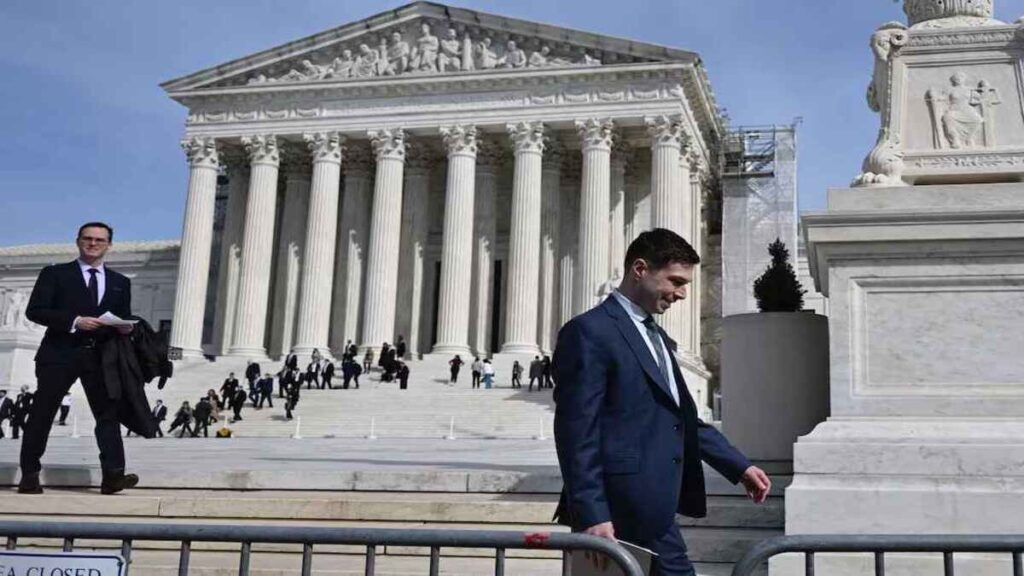
In a landmark case poised to redefine the digital landscape, the U.S. Supreme Court will deliberate on the contentious issue of state laws that regulate social media giants like Facebook, YouTube, and X.
The legal battle, which mirrors the age-old tension between free speech and regulation, has garnered nationwide attention and pits Republican lawmakers from Texas and Florida against the tech industry and the Justice Department.
At the heart of the matter are laws enacted by Texas and Florida to curb what they perceive as censorship of conservative voices by social media platforms. These laws, which seek to restrict tech companies’ ability to moderate content, have reignited debates over the boundaries of free speech in the digital age.
While proponents argue that these measures are necessary to safeguard diverse viewpoints, opponents contend they infringe upon First Amendment rights. The legal showdown underscores the profound implications of technology on free expression and public discourse. As the Supreme Court prepares to weigh in on the matter, it faces a complex array of arguments from both sides.
ALSO READ: Boy Math vs Girl Math: Why Are Social Media Users Gendering Math?
On one hand, advocates for the laws liken social media platforms to common carriers, such as telephone companies, arguing that they should not discriminate against particular content. Conversely, opponents argue that such regulations stifle innovation and impose undue burdens on the platforms.
The case also raises broader questions about the role of social media in shaping public opinion and influencing political discourse. With social media platforms wielding unprecedented influence over public debate, the Supreme Court’s decision could have far-reaching consequences for the future of online communication.
POLL — Should the Government Increase Taxes on the Wealthy To Reduce Economic Inequality?
In addition to the implications for free speech, the case has drawn attention to the broader issue of online content moderation. Social media companies regularly face pressure to police their platforms for harmful or objectionable content, raising questions about the balance between freedom of expression and the need to maintain a safe and inclusive online environment.
As the legal battle unfolds, stakeholders closely watch the Supreme Court’s deliberations. The outcome of the case could have profound implications for social media companies and the millions of users who rely on these platforms to communicate and engage with the world around them.
ALSO READ: Colorado Pastor Faces Civil Charges for Defrauding Investors of $3 Million via Crypto Scheme
Ultimately, the Supreme Court’s decision will shape the future of online speech and the regulatory framework governing social media platforms.
With the digital landscape constantly evolving, the court’s ruling will likely set a precedent for how society navigates the complex intersection of technology, free speech, and public discourse in the future.
You Might Also Like:
Authorities Arrest Minnesota Man for Murder of Los Angeles Model
Father of Michigan School Shooter, James Crumble, Fights to Keep Son’s Diary Out of Trial
Many People Are Saving $80 Monthly By Doing This
New York Judge Ruling Deals Trump a Heavy Blow, Barring Him from His NY Business Temporarily
Leaked Google Spreadsheet Shows Company’s Staff Salary
